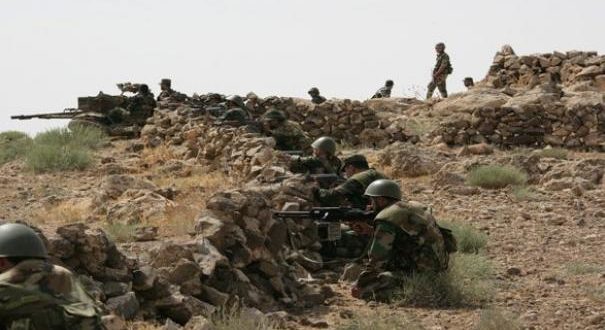As expected, the intra-Syrian agreement on a cessation of hostilities between the Syrian army and the armed factions in what was seen as a principled success of the deal could lead to ending the six-year war in Syria.
Moscow explained that it was in contact with the American side on the establishment of “deescalation zones” in Syria under the terms of the Astana agreement, after news leaked that the two sides seek to reach a new truce in the eastern Ghouta and northern Homs regions, after American president Donald Trump called for a new truce in a complex Syrian theatre.
The Russian explanation coincided with the completion of Russian negotiations with Jordan on the monitoring of the recently established deescalation zone in southwestern Syria, and the Amman Declaration that the agreement on this region is in its final stages.
Deputy Russian Foreign Minister Sergei Ryabkov commented on President Trump’s statements on the efforts to reach a “second truce” in Syria, saying: “The Russian side is in contact with the US partners about setting up de-escalation areas in Syria, and other topics for discussion in the context of the Astana process of negotiating a Syrian settlement.” “It is natural that with the acceleration of work on this trend and the accumulation of expertise, this allows us to continue and deepen our contacts in this regard,” said Ryabkov, a Russian foreign affairs official with ties to the United States, who is negotiating with his US counterpart Thomas Shannon.
According to media sources, experts from the United States and Russia are holding consultations on the subject in one of the European capitals. Russian official said, he expected that the truce will be announced before the next round of meetings of Astana, scheduled for next August, and is likely to translate into a cease-fire, around mid September. “Most likely, the truce will include Homs, and possibly the eastern Ghouta.”
Meanwhile, Russian Foreign Minister Sergei Lavrov discussed with his Jordanian counterpart Ayman Safadi during a telephone conversation which followed a telephone conversation between Russian President Vladimir Putin and Jordan’s King Abdullah II last week, addressing pressing regional issues, particularly the settlement of the Syrian crisis. Lavrov and Safadi discussed the measures taken by Russia, Jordan and some other countries to bring about a cease-fire in Syria, especially in the context of the implementation of the memorandum signed by the representatives of Russia, Jordan and the United States on 7 July. The call also stressed the need to respect the sovereignty and territorial integrity of Syria, taking into account the provisions of UN resolution 2254.
In Amman, Jordan’s Information Minister Mohammad Al-Momani said the ceasefire monitoring mechanism in south-western Syria, agreed by Jordan, the United States and Russia under the Amman agreement, was in its final stages.
Al-Momani, the official spokesman of the Jordanian government, told KUNA that the Amman agreement aims to support the cease-fire in south-west Syria between the forces of the Syrian Arab army and the forces loyal to it and the “Syrian armed opposition forces” And the importance of the agreement in strengthening efforts to establish security and stability in Syria and support efforts to seek a political solution between all parties to the Syrian crisis, in addition to facilitating the delivery of humanitarian aid to Syrians.
Momani explained Jordan’s view of the agreement as an important step to support a political solution to the Syrian crisis and the elimination of terrorism, thus ensuring border security and the return of Syrian refugees to their homeland. He stressed that Syria’s security and stability are of strategic interest for the region. He stressed that the Amman agreement is a test and a challenge to Russia and America as a turning point and precedent that the two countries are seeking to build on to resolve the Syrian conflict.
In the context of the cease-fire the opposition websites said that a meeting of leaders of the Southern Front militia with American, Russian and Jordanian experts was held in the Jordanian capital Amman on Thursday to discuss a truce in southwestern Syria.
 Geostrategic Media Political Commentary, Analysis, Security, Defense
Geostrategic Media Political Commentary, Analysis, Security, Defense





